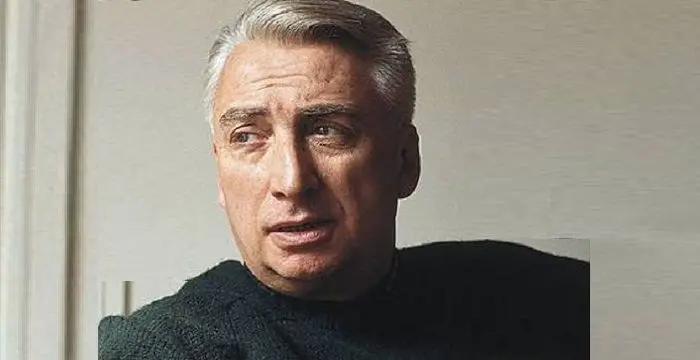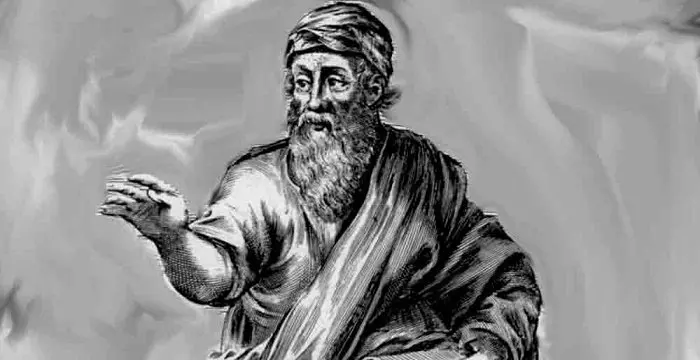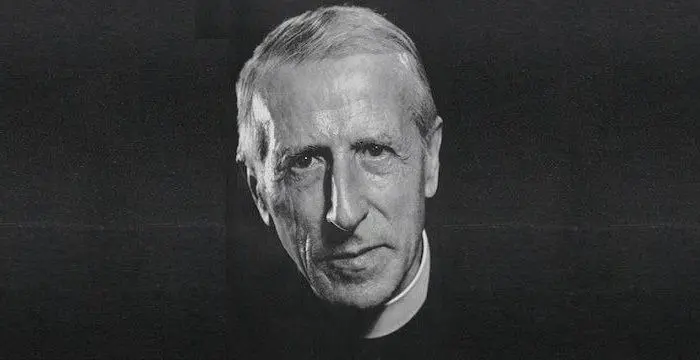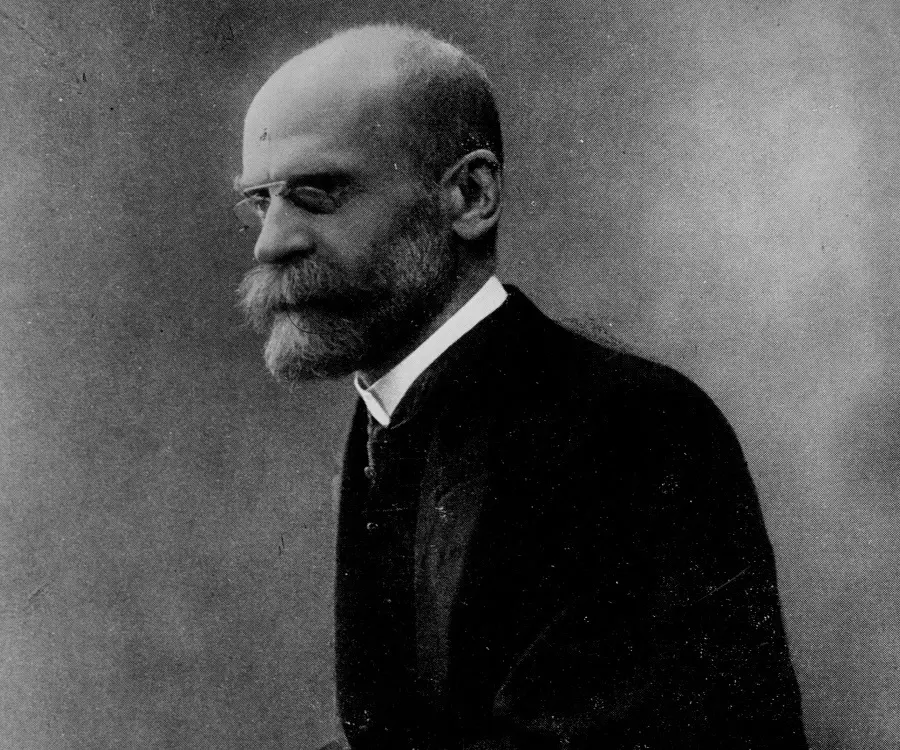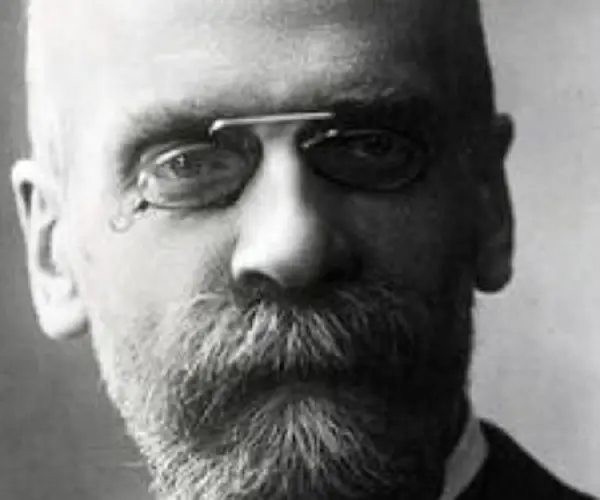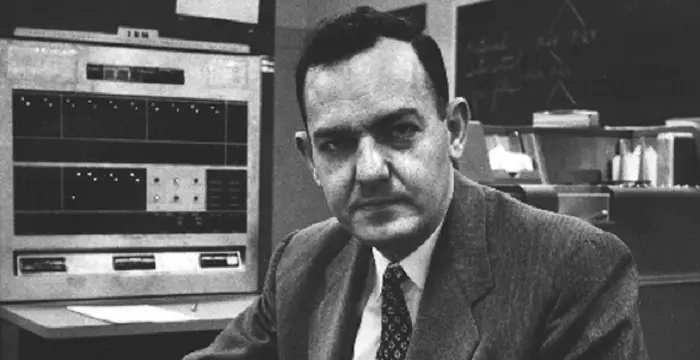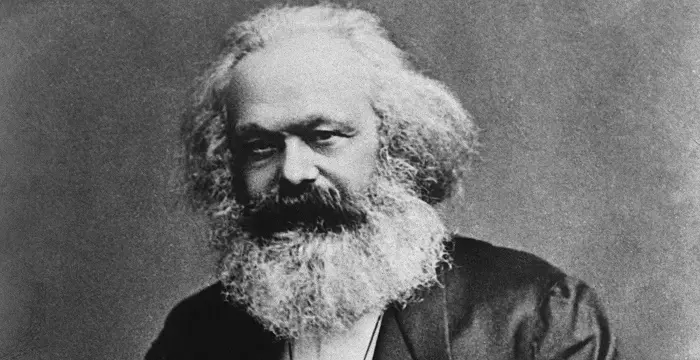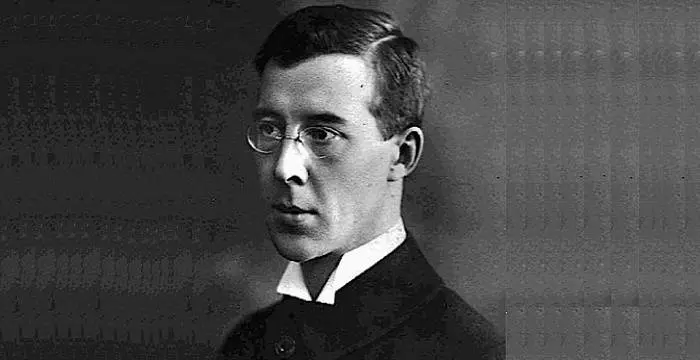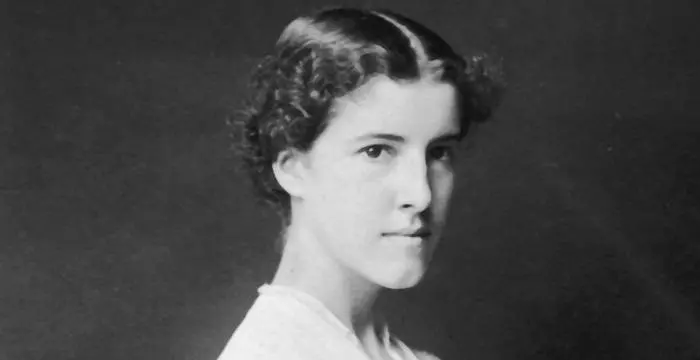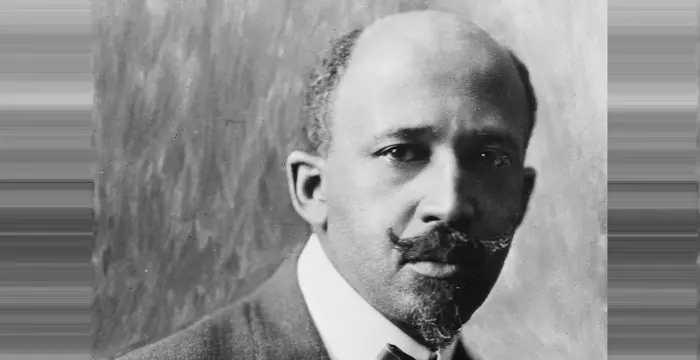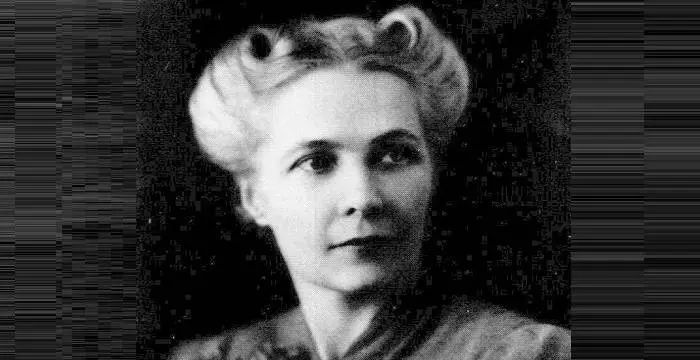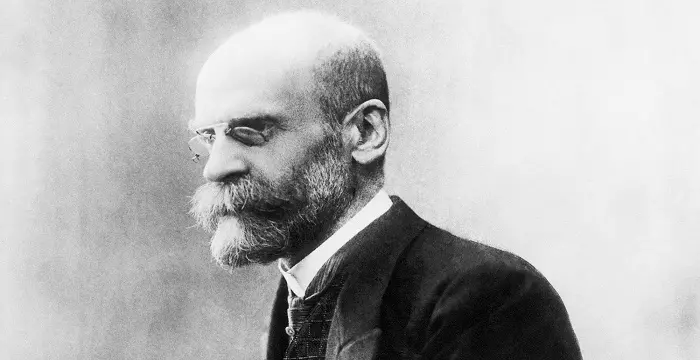
Emile Durkheim - Philosophers, Timeline and Facts
Emile Durkheim's Personal Details
Émile Durkheim was a famous French philosopher and sociologist
| Information | Detail |
|---|---|
| Birthday | April 15, 1858 |
| Died on | November 15, 1917 |
| Nationality | French |
| Famous | Intellectuals & Academics, Philosophers, Sociologists, Philosophers, Sociologists |
| Spouses | Louise Dreyfus |
| Known as | Emile Durkheim, David Émile Durkheim, Durkheim |
| Childrens | Andre Durkheim, Marie Durkheim |
| Universities |
|
| Founder / Co-Founder |
|
| Birth Place | Épinal |
| Religion | Agnosticism |
| Gender | Male |
| Sun Sign | Aries |
| Born in | Épinal |
| Famous as | Sociologist & Philosopher |
| Died at Age | 59 |
// Famous Philosophers
Roland Barthes
Roland Barthes was a French literary theorist, critic and semiotician. This biography profiles his childhood, life, works, achievements and timeline.
Pythagoras
Pythagoras of Samos was a Greek mathematician and philosopher. Read on to learn more about Pythagoras’s profile, childhood, life and timeline.
Pierre Teilhard de Chardin
Pierre Teilhard de Chardin was a famous French philosopher and a priest who was also known for his controversial writings. Read more about the life and works of this philosopher in the following article.
Emile Durkheim's photo
Who is Emile Durkheim?
David Émile Durkheim is regarded as the principal architect of modern social science and father of sociology. Born into a family of a long line of rabbis, he broke away from the Jewish tradition and produced many secular works. His first major sociological work, ‘The Division of Labor in Society’, discussed how modern society is held together by a division of labor that makes individuals dependent upon one another. In ‘Rules of the Sociological Method’, he put forward the need for scientific approach in the study of sociology, a revolutionary thought in that period of time. He set up the first European department of sociology and became France's first professor of sociology and also established the journal L'Année Sociologique. His monograph ‘Suicide’, a study of suicide rates in Catholic and Protestant populations, elevated sociology to the status of science. In his ‘The Elementary Forms of Religious Life’, he presented a theory of religion, comparing the social and cultural lives of aboriginal and modern societies. He also expressed his views on individualism, differentiating between egoism and moral individualism. He remained a dominant force in French intellectual life until his death, presenting numerous lectures and published works on a variety of topics, including the sociology of knowledge, morality, religion, law, and education.
// Famous Sociologists
Herbert Simon
Herbert Simon was an American political scientist, economist, sociologist, psychologist, and computer scientist. Check out this biography to know about his childhood, family life, achievements and other facts related to his life.
Childhood & Early Life
David Emile Durkheim was born on April 15, 1858, in Epinal, capital town of the department of Vosges, in Lorraine to Mélanie and Moïse, a rabbi of Epinal, and the Chief Rabbi of the Vosges and Haute-Marne.
Expected to become a devout rabbi, he began his education in a rabbinical school, but at an early age, he decided not to follow in his family's rabbinical path, and changed schools.
He entered the École Normale Supérieure in 1879, at his third attempt and had as classmates brilliant people such as sociologist Jean Jaurès, philosopher Henri Bergson, historian Henri Berr and the psychologist Pierre Janet
At the Normale, he was guided by Numa Denis Fustel de Coulanges, a classicist with a social scientific outlook, and wrote his Latin dissertation on Montesquieu and read Auguste Comte and Herbert Spencer.
Career
In 1882, Durkheim passed his aggregation, the competitive examination required for admission to the teaching staff of state secondary schools, or lycées, and soon began to teach philosophy.
In 1885 he left for Germany, studied sociology in Marburg, Berlin and Leipzig and by the following year completed the draft of his ‘The Division of Labor in Society’, his doctoral dissertation.
His articles on German social science and philosophy, which were influenced by the work of Wilhelm Wundt, a German psychologist, philosopher, and a founding figure of modern psychology, made him famous in France.
He was appointed with the official title, Chargé d'un Cours de Science Sociale et de Pédagogie at University of Bordeaux in 1887 to teach the university's first social science course.
He reformed the French school system and introduced the study of social science in its curriculum. However, his belief that religion and morality could be explained by social causes earned him many critics.
In 1898, he founded L'Année Sociologique, the first French social science journal which aimed to publish and publicize the works of a growing number of students and collaborators who developed his sociological program.
In 1897, he published ‘Suicide’, a case study offering a model of what the sociological monograph might look like. He explored the differing suicide rates among Protestants and Catholics.
He pioneered the use of quantitative methods in criminology during his suicide case study. He focused on primary research methods for studying the distribution and causes of crime, data collection, survey and evaluation.
By 1902, he realized his ambition of attaining a prominent position in Paris by becoming the chair of education at the Sorbonne, towards which the Parisian faculty had shown reluctance fearing “sociological imperialism"
His lectures were solely mandatory for the entire student body and had much influence over the new generation of teachers. He sat on the Council of the University and advised the Ministry of Education.
In 1912, he published ‘The Elementary Forms of the Religious Life’, which analyzed religion as a social phenomenon. He attributed the development of religion to the emotional security attained through communal living.
When World War I began, he devoted himself to the cause of national defense, organized committees for the publication documents on the war, to be sent to neutral countries to undermine German propaganda.
By 1916, he became disillusioned about the consequence of a possible German defeat and the advantage it would give the conservative clerical party in France and became conscious of his Jewish heritage.
Major Works
In 1892, he published ‘The Division of Labour in Society’, his doctoral dissertation dealing with the nature of human society, its development and argued for moral and economic regulation to maintain peace and order
In 1895, in ‘the Rules of the Sociological Method’ he declared that social sciences should also be based on a scientific method and founded the first European department of sociology at Bordeaux
Personal Life & Legacy
Durkheim married Louise Dreyfus in 1897 and they had two children, Marie and Andre. His wife followed the Jewish traditional of taking care of family affairs and helped him in proofreading and secretarial duties.
In 1915, his son Andre was killed while fighting on the Balkan front. The tragedy devastated the scholar. He suffered a stroke and died in Paris and was buried at the cemetery in Montparnasse.
Trivia
In the film, ‘Dead Man On the Campus’, there is a character named Professor Durkheim presumably named after the French sociologist who was the first academic to study suicide extensively.
For his mental brilliance and serious demeanor, this great French sociologist was nicknamed ‘The Metaphysician’ by his peers at The Ecole Normale.
// Famous Intellectuals & Academics
Bertil Gotthard Ohlin
Bertil Gotthard Ohlin was a famous Swedish economist. This biography profiles his childhood, family life & achievements.
Emily Greene Balch
Emily Greene Balch was an American economist, sociologist and pacifist who won the 1946 Nobel Peace Prize. This biography of Emily Greene Balch provides detailed information about her childhood, life, achievements, works & timeline.
Martin Buber
One of the greatest philosophers to have ever walked on earth, Martin Buber contributions to philosophy is a long-standing one. Explore all about his profile, childhood, life and timeline here.
Emile Durkheim biography timelines
- // 15th Apr 1858David Emile Durkheim was born on April 15, 1858, in Epinal, capital town of the department of Vosges, in Lorraine to Mélanie and Moïse, a rabbi of Epinal, and the Chief Rabbi of the Vosges and Haute-Marne.
- // 1879He entered the École Normale Supérieure in 1879, at his third attempt and had as classmates brilliant people such as sociologist Jean Jaurès, philosopher Henri Bergson, historian Henri Berr and the psychologist Pierre Janet
- // 1882In 1882, Durkheim passed his aggregation, the competitive examination required for admission to the teaching staff of state secondary schools, or lycées, and soon began to teach philosophy.
- // 1885In 1885 he left for Germany, studied sociology in Marburg, Berlin and Leipzig and by the following year completed the draft of his ‘The Division of Labor in Society’, his doctoral dissertation.
- // 1887He was appointed with the official title, Chargé d'un Cours de Science Sociale et de Pédagogie at University of Bordeaux in 1887 to teach the university's first social science course.
- // 1892In 1892, he published ‘The Division of Labour in Society’, his doctoral dissertation dealing with the nature of human society, its development and argued for moral and economic regulation to maintain peace and order
- // 1895In 1895, in ‘the Rules of the Sociological Method’ he declared that social sciences should also be based on a scientific method and founded the first European department of sociology at Bordeaux
- // 1897In 1897, he published ‘Suicide’, a case study offering a model of what the sociological monograph might look like. He explored the differing suicide rates among Protestants and Catholics.
- // 1897Durkheim married Louise Dreyfus in 1897 and they had two children, Marie and Andre. His wife followed the Jewish traditional of taking care of family affairs and helped him in proofreading and secretarial duties.
- // 1898In 1898, he founded L'Année Sociologique, the first French social science journal which aimed to publish and publicize the works of a growing number of students and collaborators who developed his sociological program.
- // 1902By 1902, he realized his ambition of attaining a prominent position in Paris by becoming the chair of education at the Sorbonne, towards which the Parisian faculty had shown reluctance fearing “sociological imperialism"
- // 1912In 1912, he published ‘The Elementary Forms of the Religious Life’, which analyzed religion as a social phenomenon. He attributed the development of religion to the emotional security attained through communal living.
- // 1915In 1915, his son Andre was killed while fighting on the Balkan front. The tragedy devastated the scholar. He suffered a stroke and died in Paris and was buried at the cemetery in Montparnasse.
- // 1916By 1916, he became disillusioned about the consequence of a possible German defeat and the advantage it would give the conservative clerical party in France and became conscious of his Jewish heritage.
// Famous Sociologists
Emily Greene Balch
Emily Greene Balch was an American economist, sociologist and pacifist who won the 1946 Nobel Peace Prize. This biography of Emily Greene Balch provides detailed information about her childhood, life, achievements, works & timeline.
Karl Marx
Karl Marx was a Prussian-German philosopher, revolutionary, historian and socialist whose communist ideologies and works laid the foundation for ‘Marxism’. Explore this biography to learn more about his childhood, life achievements, works & timeline.
Pitirim Sorokin
Pitirim Sorokin was a Russian-American sociologist, professor, political activist, and a noted anti-communist advocate.
Charlotte Perkins Gilman
Charlotte Perkins Gilman was a famous American feminist, sociologist and novelist. Go through this biography to learn more about her profile, childhood, life and timeline.
W. E. B. Du Bois
W.E.B. Du Bois was an American sociologist and civil rights activist who rose to prominence as the leader of the Niagara Movement.
Alva Myrdal
Alva Myrdal was a Swedish politician, diplomat and sociologist, best remembered as the winner of 1982 Nobel Prize for Peace. This biography of Alva Myrdal provides detailed information about her childhood, life, achievements, works & timeline.
Emile Durkheim's FAQ
What is Emile Durkheim birthday?
Emile Durkheim was born at 1858-04-15
When was Emile Durkheim died?
Emile Durkheim was died at 1917-11-15
Where was Emile Durkheim died?
Emile Durkheim was died in Paris
Which age was Emile Durkheim died?
Emile Durkheim was died at age 59
Where is Emile Durkheim's birth place?
Emile Durkheim was born in Épinal
What is Emile Durkheim nationalities?
Emile Durkheim's nationalities is French
Who is Emile Durkheim spouses?
Emile Durkheim's spouses is Louise Dreyfus
Who is Emile Durkheim childrens?
Emile Durkheim's childrens is Andre Durkheim, Marie Durkheim
What was Emile Durkheim universities?
Emile Durkheim studied at Lycée Louis-le-Grand, École Normale Supérieure, Leipzig University
Which company or organization was founded by Emile Durkheim?
Emile Durkheim was the founder/co-founder of Modern Sociology
What is Emile Durkheim's religion?
Emile Durkheim's religion is Agnosticism
What is Emile Durkheim's sun sign?
Emile Durkheim is Aries
How famous is Emile Durkheim?
Emile Durkheim is famouse as Sociologist & Philosopher
